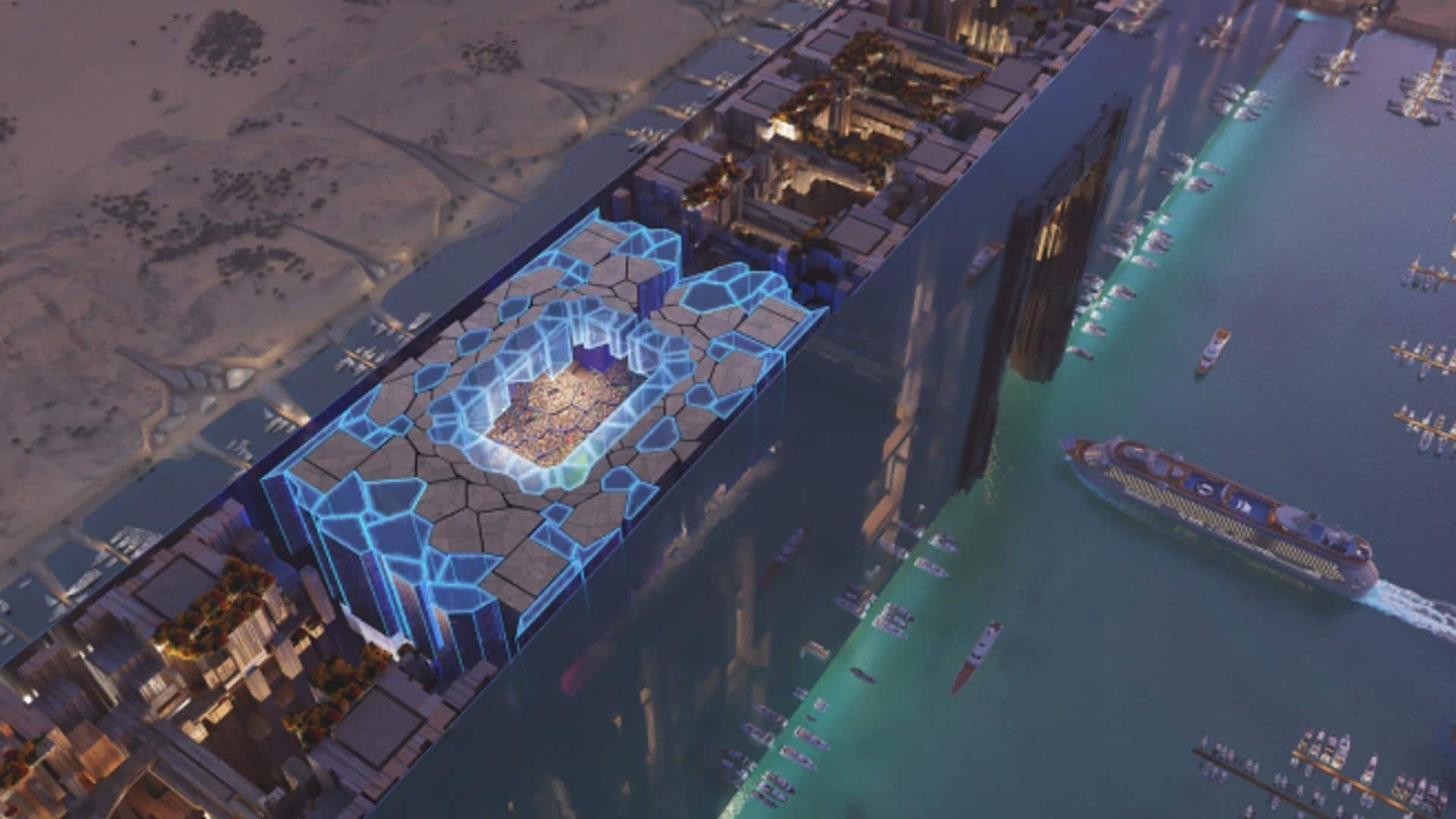
Sci-fi meets soccer: Saudi Arabia wows with futuristic stadium designs
What's the story
Saudi Arabia has unveiled ambitious plans to construct 11 state-of-the-art soccer stadiums, as part of its bid to host the 2034 FIFA World Cup.
The proposed Neom Stadium, a standout among these facilities, will be situated within the nation's smart city and elevated over 350 meters above ground level.
This innovative design incorporates polygonal shapes into the roof structure, creating a mirror-like effect above spectators in a unique beehive-like arrangement.
Green initiative
Neom Stadium: A model of sustainability and innovation
The Neom Stadium is designed to accommodate 46,000 spectators and will operate entirely on renewable energy sources, primarily wind and solar power.
The completion of this futuristic stadium is scheduled for 2032. It's strategically designed to integrate with The Line, a 170-kilometer-long linear city encased by reflective walls that features a vertical housing system, high-speed rail, and is powered by 100% renewable energy.
Tournament blueprint
Prince Salman stadium to have colored glass, LED screens
Beyond the Neom Stadium, Saudi Arabia plans to construct a three-tiered Prince Mohammed bin Salman stadium on a cliffside adorned with colored glass and LED screens.
The country intends to host matches across five cities in 15 stadiums, including eight venues in Riyadh.
This plan was disclosed following their official bid submission to FIFA, where they expressed their ambition to host "the largest-ever edition" of the tournament in a single nation.
Infrastructure
Proposed host cities and stadium capacities
The proposed host cities for the World Cup include Riyadh, Jeddah, Al Khobar, Abha, and Neom.
Riyadh is set to be home to the new King Salman stadium with a capacity of over 92,000 spectators. This venue is expected to host both the opening and final matches of the tournament.
To accommodate a 48-team World Cup, Saudi Arabia needs 14 all-seater stadiums each capable of holding at least 40,000 people.
National strategy
Saudi Arabia's sports investment strategy
Saudi Arabia's current stadium inventory includes two such facilities: Jeddah's King Abdullah Sports City Stadium and Riyadh's King Fahd International Stadium.
The oil-rich kingdom is investing heavily in high-profile sports events as part of a broader strategy to transform its conservative image and attract foreign investment.
By 2034, Saudi Arabia will have hosted the 2027 Asian Cup, the 2029 Asian Winter Games, and in the same year as the World Cup, Riyadh will host the Asian Games.
Controversy
Saudi Arabia's ambitious World Cup plans face criticism
Saudi Arabia's ambitious World Cup preparations have not been without controversy.
The country has faced backlash for allegedly using lethal force to clear villages in the path of The Line project.
Critics have also questioned the extensive resources required for its construction.
Accusations of "sportswashing," a term used when governments leverage major sporting events like the World Cup to improve their global image, have also been leveled against Saudi Arabia.